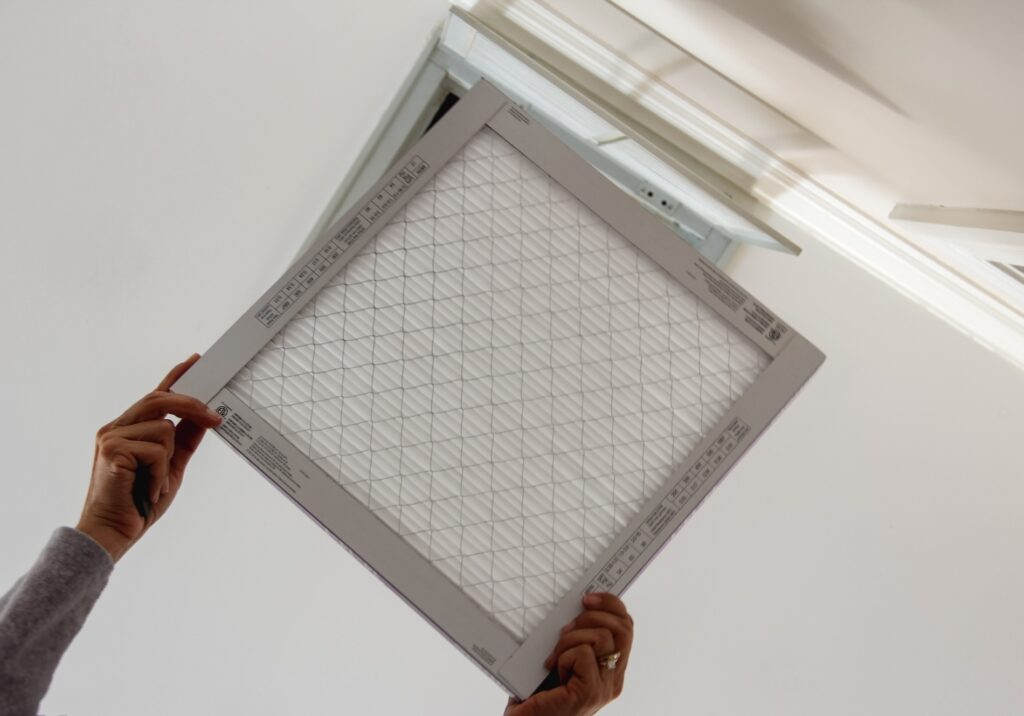Indoor air quality plays a crucial role in creating a comfortable and healthy living environment. Still, many homeowners may not realize that the air inside their homes can be more polluted than the outdoor air. Factors such as allergens, dust, mold spores, pet dander, and volatile organic compounds (VOCs) can significantly impact your home’s indoor air quality.
Consequently, it’s vital to have a robust air filtration system in place to combat these pollutants and ensure the well-being of your family. Stay tuned as we explore the significance of air filtration, discuss different types of filtration systems, and offer valuable insights to help you choose and install the perfect air filtration solution in your Woods Cross, Utah, home.
1. The Role of Air Filters in HVAC Systems: Understanding the Basics
Air filters are an essential component of your HVAC system, designed to capture and remove airborne particles from the air circulating in your home. The primary purpose of air filters is to protect your heating and cooling equipment from dust and debris, ensuring more prolonged and efficient performance. However, advanced air filtration options can also significantly improve indoor air quality and safeguard the health of your family.
2. Types of Air Filtration Systems: Weighing Your Options
When choosing the most suitable air filtration system for your home, it helps to understand the various options available in the market:
Mechanical Filters: These filters use a mesh or fabric material to physically capture airborne particles. The most common type of mechanical filter is the pleated air filter, found in many HVAC systems’ return air ducts. These filters can effectively remove large particles like dust and pet dander but may be insufficient for smaller contaminants like mold spores and bacteria.
High-Efficiency Particulate Air (HEPA) Filters: HEPA filters are more advanced filtration systems that can capture particles as small as 0.3 microns. They are highly effective in trapping allergens, mold spores, and other fine particles, significantly improving indoor air quality.
Electronic Air Filters: These systems use an electrostatic charge to attract and capture particles from the air. Electronic air filters are capable of trapping both large and small pollutants, making them a great option for comprehensive air filtration.
Ultraviolet Germicidal Irradiation (UVGI) Systems: UVGI filters use ultraviolet light to kill or neutralize airborne microorganisms, such as viruses, bacteria, and mold spores. While UVGI systems can be highly effective in eliminating pathogens, they must be complemented with a traditional filter to remove larger particles like dust and pet dander.
3. Factors to Consider When Choosing the Right Air Filtration Solution
Selecting an air filtration system requires careful consideration of various factors to ensure optimal results for your particular needs:
Indoor Air Quality Concerns: Consider what specific pollutants or allergens may be affecting your home’s air quality. For instance, if you are primarily concerned about allergens and mold spores, a HEPA filter would be an ideal choice.
Filter Efficiency: Determine the efficiency of the filters you are considering by checking their Minimum Efficiency Reporting Value (MERV) rating. A higher MERV rating indicates better filtration capabilities. However, keep in mind that a higher MERV rating can add resistance to airflow, potentially impacting HVAC energy efficiency.
Maintenance Requirements: Different air filtration systems have varying maintenance needs. While some mechanical filters require regular replacement, electronic filters can be washed and reused. Be prepared to commit to the necessary maintenance activities for your chosen system.
Compatibility with HVAC System: Ensure that the air filtration system you choose is compatible with your existing HVAC system, considering factors like available space, duct size, and system capacity.
4. Professional Assistance with Air Filtration Selection and Installation in Woods Cross, Utah
Partnering with our experienced technicians when choosing and installing your air filtration system can significantly impact your indoor air quality results:
Expert Evaluation: Our professionals can assess your home’s current air quality, evaluate your HVAC system, and identify specific concerns to help determine the most suitable air filtration solution.
Proper Installation: Correct installation ensures that your air filtration system functions at peak performance. Our technicians will follow manufacturer guidelines and adhere to industry best practices when installing your air filtration system.
Maintenance Support: Ongoing maintenance is vital for the longevity and efficiency of your air filtration system. Our professionals can provide regular filter changes, system inspections, and other maintenance tasks to ensure your investment continues to yield positive results.
Conclusion
Efficient air filtration systems in Woods Cross, Utah, are integral to maintaining clean air, protecting your family’s health, and ensuring overall comfort within your living environment. By considering the various types of filtration systems, evaluating your specific indoor air quality concerns, and partnering with our expert technicians at B.L.R. Heating & Air, you can find the ideal air filtration solution for your home. With professional guidance, installation, and maintenance, you can breathe easier knowing you’ve made a smart investment in your family’s well-being and the efficiency of your HVAC system. Contact us today.





